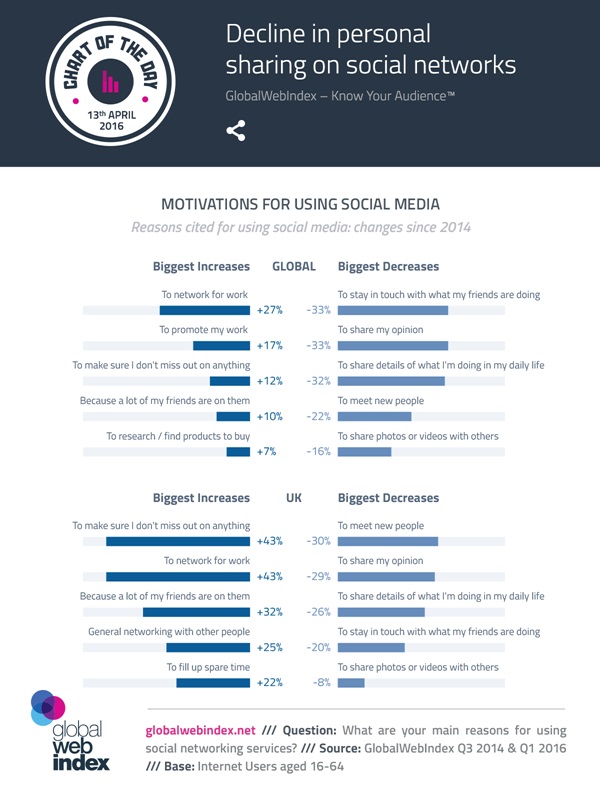Facebook users are now less likely to share personal information on the social network, instead opting to cross-post content from friends or other media platforms, according to new research.
Data from Global Web Index suggests that Facebook is experiencing a ‘context collapse’ as users are now less likely to post or share things related to their personal lives (such as photo or status updates) in favour of cross posting content from other platforms, such as funny videos, news or memes.

Motivations such as sharing photos, sharing opinions and sharing details of daily lives have seen the biggest percentage decreases globally over recent quarters.
At the other end of the spectrum, work-related usage of networks has seen notable growth, as has “FOMO” (the desire to use social platforms to ensure people don’t miss out on anything, or because lots of their friends are on them).
This is a trend subject to local nuances and variations. Fear-of-missing-out is particularly strong in a market like the UK, for example, where it’s seen a 43% increase since 2014.
Usage of social networks as a time-filler has also been on the rise – something which chimes with this motivation now being the second most important one globally for using social networks.
Although ‘sources familiar’ with the Facebook story noted that overall levels of sharing remained strong, it’s clear that many networkers are increasingly uploading or cross-posting content from other sites or platforms rather than original posts about themselves.
So, Facebook’s challenge is to convince users to bring personal posts back to the site, rather than using other avenues such as messaging apps where people can broadcast them to smaller and more controlled audiences.
Along with all other big networks, it will also want to ensure it’s still seen as an essential destination for those keen to avoid missing out on anything.
